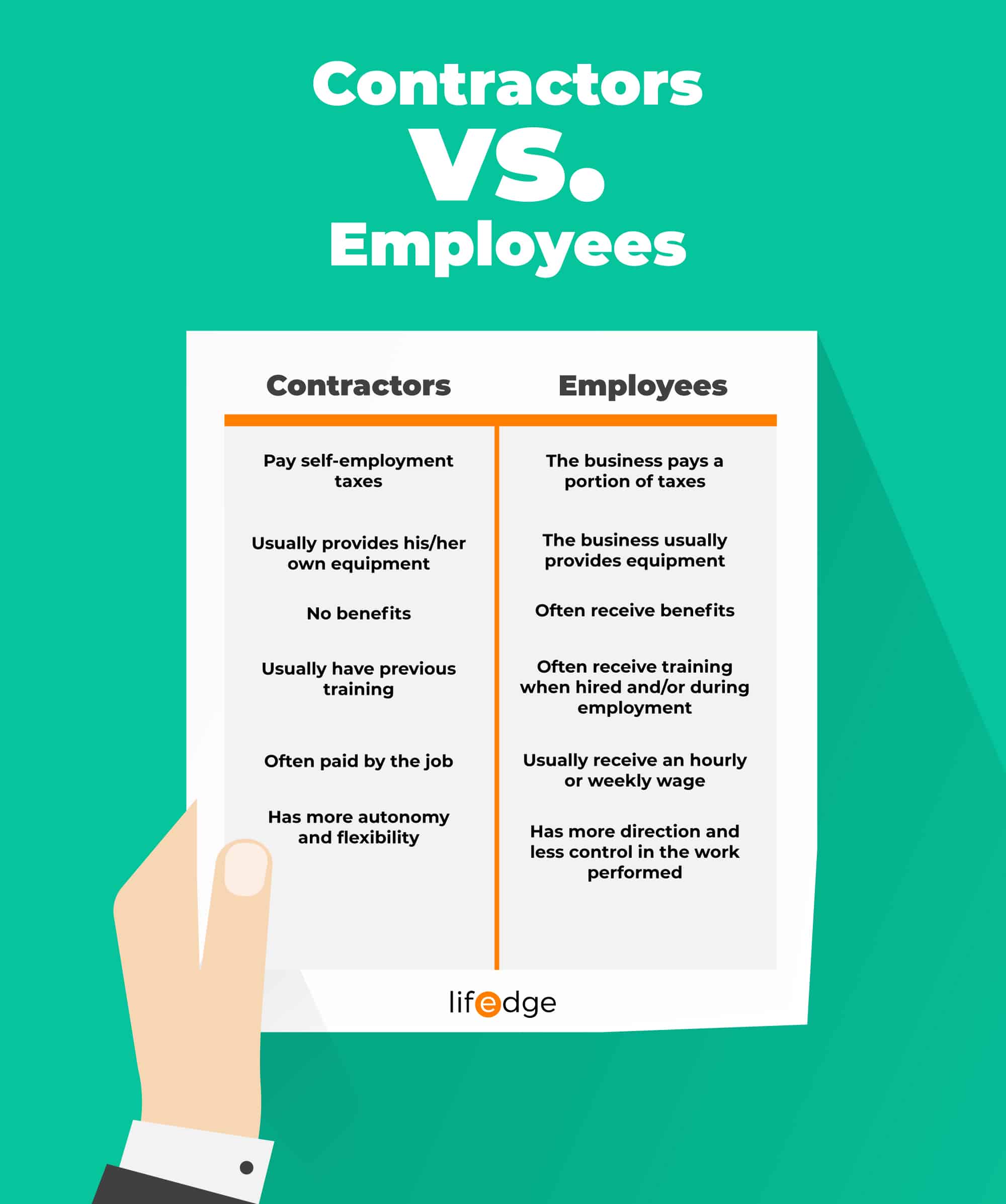Should you hire contractors or employees? There are pros and cons to both. In general, you may save some money by hiring contractors. However, the risks can be greater, and you have less control. We’re going to look at some of the main differences between contractors and employees.
Let’s start with some of the benefits of hiring a contractor.
Taxes
For a business, likely the greatest benefit to hiring contractors is that you (as the busines owner) don’t have to pay any taxes, such as Social Security, Medicare, or unemployment tax. Instead, the contractor is subject to pay self-employment taxes. Because of this, contractors are often paid at a slightly higher rate than employees.
Equipment
However, taxes aren’t the only thing you’re going to save money on when you hire an independent contractor. Independent contractors are usually responsible for providing their own equipment. This means that you won’t be spending money on office space, computers, tools, rent, coffee, or whatever else you would normally need to provide an employee in order for them to work.
Benefits
While employees often receive benefits, such as insurance, a pension plan, vacation pay, or sick pay, contractors usually do not. Contractors can certainly streamline your hiring process, as you won’t need to deal with the logistics of these benefits.
Hiring contractors isn’t always a walk in the park, though. While there are benefits to contractors, there are also advantages to hiring employees.
More control
When you hire an employee, you have the right to control when, where, and how the work is done. Conversely, an independent contractor usually has flexibility and autonomy in these areas. For contractors, the payer generally has the right to control or direct only the result of the work, and not necessarily what will be done, or how it will be done.
Permanent employment
While contractors sometimes have long-term agreements, they’re often hired for specific jobs. Hiring an employee is usually seen as a longer-term arrangement. While you usually need to invest more training into an employee, the investment is worth it, since you are probably counting on that person being around for a while. Employees usually provide services that are a regular aspect of the business.
More considerations
Contractors have more autonomy and flexibility than employees, making contracting appealing for self-motivated and creative workers. They also have more opportunity for profit or loss, and usually have no specific “boss”. On the flip side, they are more likely to incur unreimbursed expenses, and don’t always have guaranteed work.
An employee can generally count on having a steady job, and is usually paid at an hourly or weekly wage. Employees also often enjoy benefits. Yet, they have more instruction and less flexibility in their work.
If you’re debating whether you should hire contractors or employees, spend some time considering the pros and cons, as well as the nature of the position(s). It’s important to be careful to classify a worker correctly, as misclassification can result in fines, penalties, and legal disputes.

Contractors or employees, we want to see you succeed.
We want to see your business thrive, whether you hire contractors or employees. To learn more about how we can help you, visit us at lifedge.online, or contact us here.










0 Comments